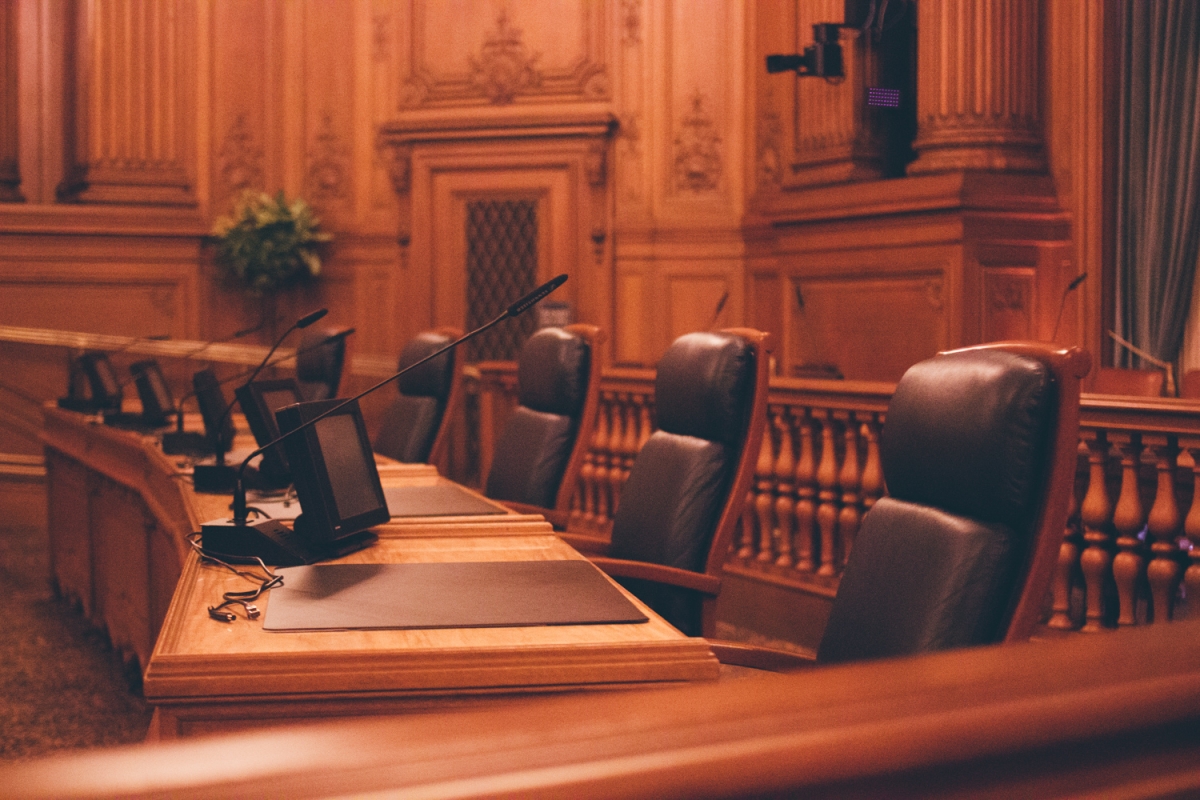
This Charter amendment would require the mayor to act fast when appointing people to fill vacancies in elected office — but appointments to the Board of Supervisors would be temporary and appointees not be allowed to run in a subsequent election for the remainder of the term.
The supervisors voted 6-5 to put this initiative on the ballot. Voting for: John Avalos, David Campos, Jane Kim, Eric Mar, Aaron Peskin and Norman Yee. Voting against: board President London Breed, Malia Cohen, Mark Farrell, Katy Tang, Scott Wiener.
Why is this on the ballot?
In January 2011, Mayor Gavin Newsom left office after winning election as the state’s lieutenant governor. The Board of Supervisors appointed Ed Lee, the city administrator, to fill the remainder of Newsom’s term, and Lee pledged not to run to keep his seat in the next election. But Lee went back on his word and ran successfully for mayor in November 2011. He won again in 2015.
 |
| Photo by Nadia Mishkin / San Francisco Public Press |
In the aftermath of Lee’s 2011 reversal, Avalos proposed a ballot measure in 2014 that would have kept appointed mayors and supervisors from running to remain in office. Avalos described it as “consistent with what the expectation was when we voted to select Ed Lee for interim mayor.” He also said the measure was “about promoting popular democracy” and “investing greater power in the hands of the voters.”
That measure failed to make it onto the 2014 ballot. Avalos re-introduced it this year, after altering it so that it no longer applied to the mayor’s office and focused primarily on supervisors the mayor appointed.
“Those appointments can be very divisive for the districts where elections are held,” Avalos said at a July board meeting. It was an obvious reference to Julie Christensen, whom Lee appointed to the District 3 supervisorial seat in early 2015, after David Chiu won election to the state Assembly. Later in the year, she ran to keep the seat and lost to Peskin, who preceded Chiu in the seat and is often at odds with Lee.
The measure’s proponents argue that a mayor-picked appointee gains name recognition and access to key financial backers, securing an advantage over other candidates in the next election.
The opponents argue that current policy actually fosters political accountability and strengthens the democratic character of San Francisco’s government, because appointees must represent the best interests of their constituents if they hope to win the next election.
The opponents also argue that mayoral picks have a mixed success rate at retaining their seats. Christensen was on the board for 11 months before Peskin defeated her.
Regardless of the fate of Proposition D, the city will face a Board of Supervisors vacancy in January. Either Supervisor Jane Kim, of District 6, or Scott Wiener, of District 8, will be the next state senator representing San Francisco. Lee’s appointee could end up representing those residents for 18 months, because the next election will occur in June 2018.
What would it do and at what cost?
If this proposition passes, the mayor would have to fill a vacated position within 28 days of that politician’s departure. The mayor currently has no deadline for doing so.
If the vacancy was on the Board of Supervisors, the mayor’s appointee, rather than serving until the next scheduled election, would serve only until an election could be held within four or five months. The appointee would not be allowed to run in that election to fill out the remainder of the term but could run in subsequent elections.
The election to fill the vacancy would be held under the following criteria:
- Within 126 to 154 days if no city election is scheduled;
- Within 180 days if another election is scheduled already during that time;
- More than 180 days later if the director of elections requests and both the mayor and the supervisors approve.
The senior vice president of public policy for the San Francisco Chamber of Commerce, James Lazarus, urged the city’s Ballot Simplification Committee to modify the initiative wording to specify a “special election,” saying the city Charter differentiates between general elections and special elections. The wording was not changed.
The city controller has estimated that Proposition D would cause at least one additional, special election to be held to fill vacancies in the Board of Supervisors during every typical, four-year election cycle. Each special election would cost the San Francisco Department of Elections about $340,000.
Who officially proposed it?
Supervisors John Avalos, Eric Mar, David Campos, Jane Kim, Aaron Peskin and Norman Yee.
Who officially opposed it?
U.S. Sen. Dianne Feinstein, former San Francisco mayor.
Vote threshold to pass
Simple majority — 50 percent plus one
Effective date if passed
To be determined according to criteria in the proposition.
Follow the money
Two committees sympathetic to Lee are spending money to oppose Proposition D and three other initiatives that would restrict the mayor’s power: “No Recall on Mayor Lee, No on D, H, L, and M,” and “San Franciscans Against Wasteful Spending, No on Propositions D, H, L & M.”
Note that there is no recall measure on the November ballot.
Follow the money at the San Francisco Ethics Commission: all Proposition D filings.
Our coverage
Proposition D Drains Mayor’s Power in Filling Supervisor Seats, Other Major Vacancies — Nov. 3, 2016
– Zachary Clark
Endorsements: our methodology
The Public Press chose to count endorsements from organizations that backed multiple candidates or ballot measures, and that made those endorsements available online. We did not count endorsements from individuals.
If you think we missed an important organization, please tell us. We’d love to hear from you.
Tracked endorsements by organization
Written by: Zachary Clark and Noah Arroyo
Published: Sept. 30, 2016






